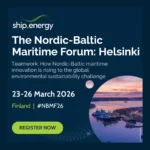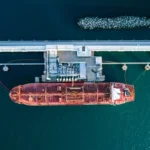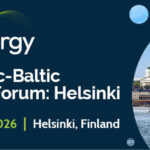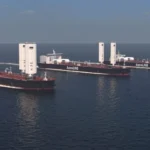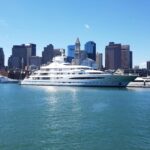With the growth of Norsepower’s manufacturing capacity and increased global demand for its Rotor Sails, the collaboration will help the organisation work at scale and further strengthen its customer service offering in cooperation with Wärtsilä’s global supplier network.
The Merger will better position Clean Marine to fulfil the needs of its customers and meet the rising demand for EGCS following the implementation of the new limits on sulphur emissions that come into effect on January 1, 2020.
There’s a lot of noise in the digital + shipping market. The annual iShipping forum in Copenhagen this September aims to help you get a clearer picture of what is going on – which technology developments you should care most about, or which have the biggest impact on your business.
With topical presentations, panel discussions, Q&A sessions and innovator’s showcase the day is set to be both informative and engaging.
Under the contract, TMC will provide a large compressed air system consisting of frequency-controlled instrument air compressors, air compressors, and associated air dryers and filters.
The investment enables Norsepower to scale up production at its manufacturing facilities as part of a next phase of commercialisation triggered by demand for its renewable wind energy propulsion systems.
From shipbuilding raw components, electrical systems, deck and safety equipment, port constructions to shipbuilding systems and technology, all maritime related products and services can be found in Marintec China.
The conference’s opening included speeches for the prestigious figures participating at the event, mainly for President of the Arab Academy for Science and Technology and Maritime Transport (AASTMT) Dr. Ismail Abdel Ghafar Ismail, President of World Maritime University WMU, Dr. Cleopatra Doumbia-Henry, and Minister Fenianos.
The set-up of the office in Shanghai will follow the successful blueprint that TMC has implemented in Busan, South-Korea, and in Singapore, where dedicated local set-ups support the countries’ yards as well as local shipowners and operators.
The Kingston-class of MCDVs, commissioned in the 1990s were designed with open case funnels which make the water mist system the ideal solution in this application.











